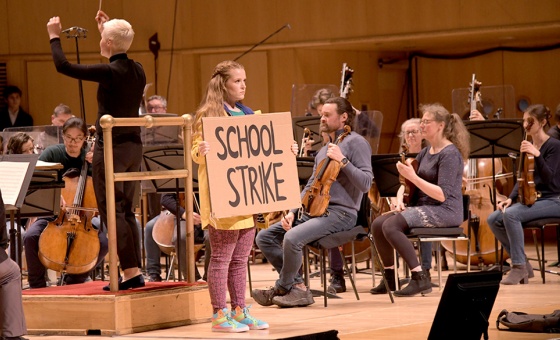This is the last article you can read this month
You can read more article this month
You can read more articles this month
Sorry your limit is up for this month
Reset on:
Please help support the Morning Star by subscribing here
IF this year’s STUC could be said to have a theme, it might be summed up as “taking the fight to our enemies and demanding more from those who claim to be friends.”
While the attack on the living standards of working people has been severe, there has also been a massive fightback from across the trade union movement.
We should acknowledge and congratulate our members for all they achieved last year; it has been a hard shift but we are stronger together.
Of course, this hasn’t gone unnoticed by the Tory government and its tax-dodging, press-baron pals. It has been quick to try and demonise us as agitators and militants who don’t have our members’ interests at heart — the same old story they always tell whenever working people stand up for themselves.
But as anyone who has been on a picket line over the last year will know, the public isn’t falling for it any more. People can see that desperation is what put folk on the picket lines. Desperation for a decent pay rise.
All unions have really done is respond to the needs of our members — to try and keep the lights on and put food on the table. That’s what put folk on picket lines: they know it’s the only way that they are going to get pay settlements that will let them keep the heating on.
We’ve seen from the last year that the days of people sitting back and quietly letting their lives get more miserable are over — people are saying enough is enough.
At this point, any sensible government, even a Tory one, would realise that putting some sort of brake on the onslaught is what is needed now. But that isn’t the response we have had — instead what we are getting is a legislative attack.
It comes in the form of the Strikes (Minimum Services Level) Bill. Needless to say, the sudden interest of the Tories in levels of services has provoked more than a few bitter chuckles among Unison members.
Our front-line members, our nurses, paramedics, social care workers, those caring for the most vulnerable in our society are working with minimum staffing levels each and every day, every single shift.
We know what it is to provide life and limb cover. But we won’t be forced to cross picket lines or be threatened with the sack if we don’t.
Because, of course, the purpose of the Bill is not about service levels at all. What the Tories are trying to do with this Bill is to limit not so much trade unions’ right to strike, but everyone’s freedom to withdraw their labour.
Our most obvious response is needing the SNP-Green Scottish government to have a real, not just rhetorical, opposition to this Bill — to use all of the avenues at its disposal to ensure that this Bill won’t be used in the areas where it has influence.
We also need it to deliver on its promises to extend collective bargaining. It wasn’t the trade union movement that set the target of Scotland being a “fair work nation” by 2026 — that was the Scottish government.
But while they talk and talk, between 2007 and 2020, the percentage of workers covered by a collective agreement actually went down by 6 per cent.
It’s been the position of the STUC for a long time that employment law should be devolved — a view Congress will repeat this year. We also acknowledge that currently, it isn’t. So we are being clear about what we expect from those who seek to replace the Tories.
One obvious — and it shouldn’t be too challenging — task would be all political parties accepting that the procedures that they think are good enough to elect a prime minister or first minister are good enough for our members when they are making a decision about using their rights to withdraw their labour: if digital balloting is good enough for them, its good enough for us.
We need more than that though — we need a restoration of the rights and freedoms to organise that unions used to have when Britain was a more equal country than it is now, with those freedoms enshrined in a Bill of rights.
But what will be crucial is never forgetting that protecting or extending our rights depends less on the logic of our arguments, and more on the strength our organising.











